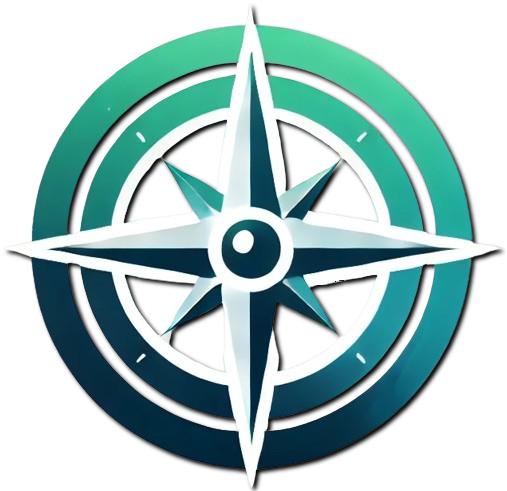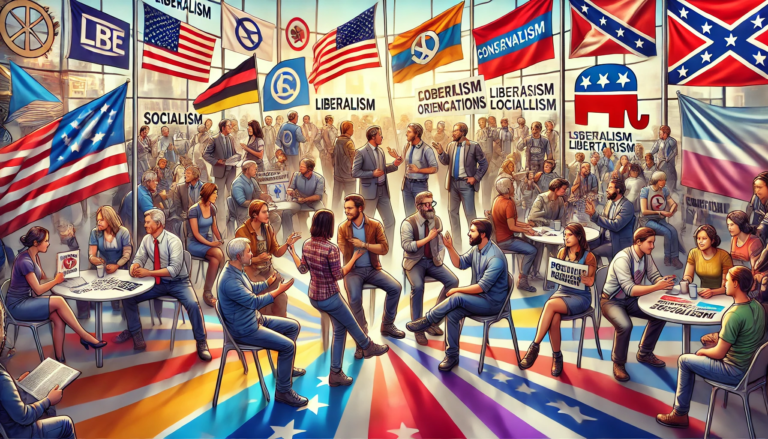Uncover you political Identity Now
In today’s dynamic and polarized world, knowing your own political identity is vital. It defines your core beliefs and values regarding social, economic, and governmental issues, and also shapes your perspective on public policies and crucial decisions that affect society as a whole.
Clarity and Coherence on your Political identity
Understanding your political orientation provides invaluable clarity on where you stand on the ideological spectrum. Are you progressive, conservative, liberal, or perhaps centrist? This self-awareness not only helps you articulate your opinions coherently but also allows you to ground your arguments solidly and consistently. Such coherence is essential in both informal debates and more formal public discussions, contributing to a richer and more constructive exchange of ideas.
Empowerment for Civic Participation
Knowing your political orientation empowers you as a citizen by enabling you to make informed decisions in the political realm. From choosing candidates in elections to supporting causes and social movements, being aware of your ideological inclinations helps you align your actions with your personal values and fundamental principles. This promotes more active and effective civic participation, crucial for the healthy functioning of any democracy.
Resistance to Misinformation and Manipulation
In a political environment where misinformation and manipulation are common tools, knowledge of your political orientation acts as a shield against harmful external influences. By understanding your own viewpoints and how they align with various ideological currents, you become less vulnerable to polarizing messages designed to manipulate emotions rather than inform rationally. This fosters critical thinking and an objective evaluation of information, strengthening your ability to discern among diverse perspectives and arguments.
Facilitation of Constructive Dialogue
Understanding your political orientation also facilitates constructive dialogue with people who have different opinions. Being well-informed about your own political convictions allows you to engage in more productive discussions, seeking common ground and understanding fundamental differences. This type of exchange not only enriches your personal understanding but also promotes social cohesion by fostering mutual respect and understanding among individuals with diverse political perspectives.
Personal and Social Development
Knowing and exploring your political orientation is an integral part of your personal and social development. This process challenges you to reflect on your values, deepen your understanding of the world, and strengthen your political identity. Moreover, it allows you to adapt and adjust your opinions as you evolve intellectually and emotionally, contributing to a more informed and engaged citizenry.
Conclusion
In conclusion, knowing your own political identity is not only crucial for your personal and social development but also fundamental for effective civic participation and informed decision-making. This self-awareness provides clarity and coherence in your opinions, empowers you to positively influence your community and society, and helps you navigate the complex political environment consciously and responsibly. Therefore, dedicating time to exploring and understanding your political orientation is essential for thriving in today’s political landscape.
References
- Dalton, R. J. (2008). Citizen Politics: Public Opinion and Political Parties in Advanced Industrial Democracies. Chatham House Publishers. – This book provides a comprehensive overview of how political orientations influence public opinion and party politics in modern democracies.
- Conover, P. J., & Feldman, S. (1981). The Origins and Meaning of Liberal/Conservative Self-Identifications. American Journal of Political Science. – Discusses the psychological and sociological roots of political orientations.
- Jost, J. T., Federico, C. M., & Napier, J. L. (2009). Political Ideology: Its Structure, Functions, and Elective Affinities. Annual Review of Psychology. – Examines the functions and structure of political ideology and its influence on individuals’ choices and preferences.
- McCoy, J., & Somer, M. (2019). Toward a Theory of Pernicious Polarization and How It Harms Democracies. Annual Review of Political Science. – Explores the effects of extreme political polarization, which stems from deeply entrenched political orientations.
- Hibbing, J. R., & Theiss-Morse, E. (2002). Stealth Democracy: Americans’ Beliefs About How Government Should Work. Cambridge University Press. – Discusses Americans’ views on the ideal government, which is deeply influenced by their political orientations.
Scholarly Articles
- Layman, G. C., & Carsey, T. M. (2002). Party Polarization and ‘Conflict Extension’ in the American Electorate. American Journal of Political Science. – Analyzes how political polarization affects electoral behavior.
- Hetherington, M. J., & Weiler, J. D. (2009). Authoritarianism and Polarization in American Politics. Cambridge University Press. – Explores how authoritarian tendencies relate to political polarization and orientation.
- Baldassarri, D., & Gelman, A. (2008). Partisans without Constraint: Political Polarization and Trends in American Public Opinion. American Journal of Sociology. – Provides insights into the trends of political polarization and its implications for public opinion.
- Fiorina, M. P., & Abrams, S. J. (2008). Political Polarization in the American Public. Annual Review of Political Science. – Discusses the increasing ideological sorting of parties and its effects on the American public.
- Johnston, C. D., Lavine, H., & Federico, C. M. (2017). Open versus Closed: Personality, Identity, and the Politics of Redistribution. Cambridge University Press. – Links personality traits with political orientation and attitudes toward economic redistribution.
Reports and Other Sources
- Pew Research Center. (2020). Political Polarization in the American Public. – Offers a detailed look at how deep ideological divisions impact politics and society in the United States.
- World Values Survey. World Values Survey: Findings and Insights. – An ongoing cross-national survey that explores people’s beliefs and how these relate to their political orientations.
- Gallup, Inc. (2020). Gallup Annual Review of Political Leanings. – Provides an annual overview of Americans’ political leanings and how they change over time.
- NORC at the University of Chicago. (2021). General Social Survey (GSS). – Includes data on societal trends and how political orientations affect social attitudes.
- The Economist Intelligence Unit. (2021). Democracy Index: The Role of Political Orientation. – Discusses how political orientations impact democracy metrics globally.







